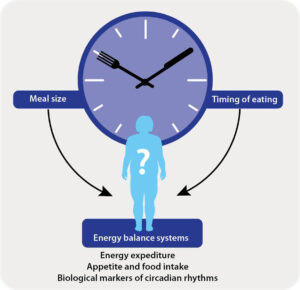The Rise of GLP-1 Agonists: A New Era in Obesity Treatment
In recent years, the landscape of obesity treatment has been dramatically transformed by the introduction of GLP-1 agonists. Medications like Wegovy and Ozempic, both containing the active ingredient semaglutide, have quickly become household names, offering new hope to millions grappling with weight management. These innovative drugs work by mimicking a gut hormone that influences appetite and reward centers in the brain, effectively reducing hunger and food intake.
The Promise and Pitfalls of GLP-1 Agonists
Despite their meteoric rise in popularity, GLP-1 agonists face significant challenges. High costs, side effects, and supply shortages have contributed to a substantial dropout rate.
An industry analysis revealed a startling statistic: about two-thirds of individuals who began taking GLP-1 agonists in 2021 had discontinued use within a year. This high attrition rate underscores the complex reality of these medications beyond their initial promise.
The Weight Loss Journey: Expectations vs. Reality
Clinical trials have demonstrated impressive results for those who maintain their medication regimen. In one study, participants achieved an average weight loss of 10.6% in approximately four months. However, the narrative changes dramatically for those who cease taking the drug. Participants who switched to a placebo regained almost 7% of their body weight within 11 months.
Another study found that individuals who stopped the medication after more than a year regained about two-thirds of their lost weight within a year.
An observational study further corroborated this trend, revealing that 44% of people regained at least a quarter of their lost weight one year after discontinuing semaglutide.
Beyond the Scale: Broader Health Implications
The impact of discontinuing GLP-1 agonists extends far beyond mere weight regain. Other health markers that had improved while on the medication often revert to previous levels. Waist circumference tends to increase, potentially elevating the risk of fatty liver disease and other metabolic issues.
Blood pressure, blood glucose, and cholesterol levels may also return to pre-treatment levels, underscoring the holistic health benefits of these medications and the potential risks of discontinuation.
The Multifaceted Reasons for Discontinuation
The high dropout rate among GLP-1 agonist users can be attributed to several factors. Side effects play a significant role, with about 75% of clinical trial participants experiencing gastrointestinal distress. The financial burden is another major obstacle, as the medication can cost upwards of $1,350 per month in the US, making it unaffordable for many without insurance coverage.
Supply shortages have further complicated access, with manufacturers struggling to meet the surging demand. Insurance limitations pose additional barriers, with some plans, including Medicare in the US, not covering these drugs for weight loss. In the UK, the National Health Service only provides two years of coverage for weight loss treatment with these drugs, creating a time constraint for users.
The Long-Term Use Debate
While many researchers view GLP-1 agonists as lifelong treatments, the realities of healthcare systems and individual circumstances often lead to discontinuation. This discrepancy raises critical questions about the long-term management of obesity as a chronic condition.
The medical community is grappling with how to address the needs of patients who must or choose to stop taking these medications, highlighting the need for comprehensive, sustainable approaches to weight management.
Navigating Discontinuation: Strategies for Success
For those who must or choose to stop taking GLP-1 agonists, experts recommend a thoughtful approach. Gradual tapering of the medication may help minimize rebound hunger. Close monitoring of weight and appetite changes is crucial, allowing for timely interventions if needed.
Maintaining lifestyle changes, including dietary modifications, regular exercise, and mental health support, remains paramount. In some cases, alternative treatments, including other medications or bariatric surgery, may be considered as part of a comprehensive weight management plan.
The Future of Obesity Treatment
As our understanding of GLP-1 agonists continues to evolve, healthcare policies and practices are likely to adapt. Researchers emphasize the pressing need for more studies on long-term management strategies, particularly for those who have achieved their weight loss goals.
The future of obesity treatment lies in developing more nuanced, personalized approaches that can provide sustainable results beyond the initial success of medication-assisted weight loss.
Conclusion: A Continuing Journey
The advent of GLP-1 agonists has undoubtedly marked a significant milestone in the treatment of obesity. However, as we navigate the complexities of these powerful tools, it’s clear that they also present new challenges.
The journey towards effective, sustainable weight management remains an ongoing process of scientific discovery, healthcare innovation, and individual perseverance.
As research progresses and our understanding deepens, the hope is that we can develop more comprehensive, long-lasting solutions to one of the most pressing health challenges of our time.
GLP Diet Pro: Your Gateway to Personalized Health Revolution!
Unlock the full potential of your weight loss journey with GLP Diet Pro, the game-changing program that’s transforming lives! As Dr. Ali Arjomand, I’m thrilled to offer you a cutting-edge approach that combines the power of GLP-1 medications with expert-crafted, personalized nutrition plans.
Say goodbye to one-size-fits-all diets and hello to a tailored experience that understands your unique needs.
With customized meal plans, one-on-one coaching, and a supportive community, we’re not just helping you shed pounds – we’re revolutionizing your relationship with food and health.
Don’t let confusion about GLP-1 medications hold you back any longer. Join us at Modulla Health and embark on a transformative journey to a healthier, happier you. Your personalized path to optimal health starts here – visit our services page now and take the first step towards the new you!















